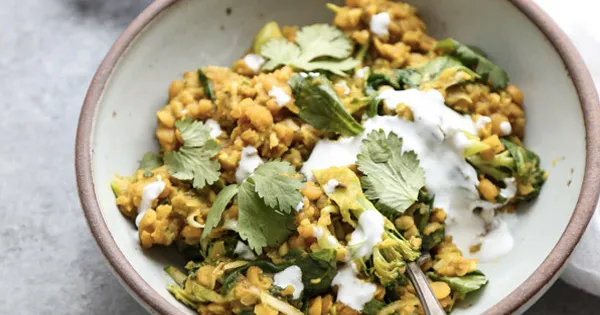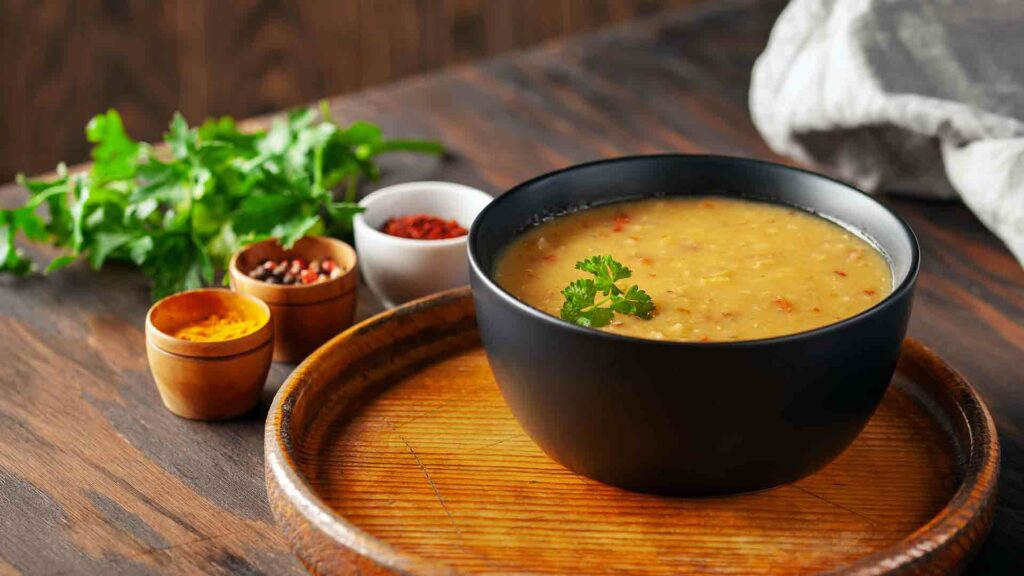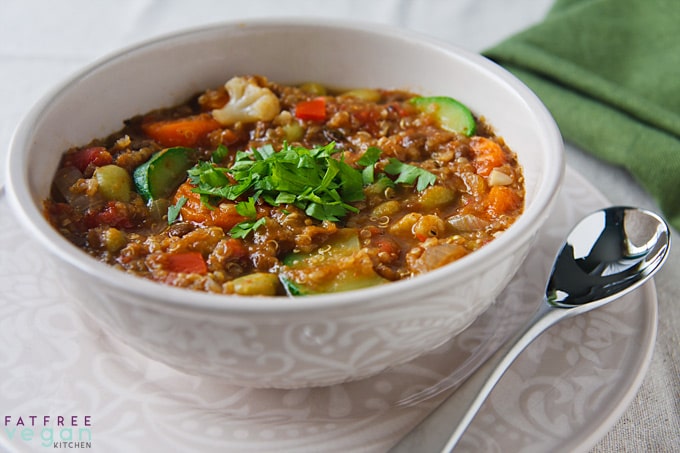Finding ways to care for our bodies is like a special adventure in a world where staying healthy is important. WellHealthOrganic.com is a special place that knows much about Ayurveda, an ancient way of keeping fit.
They’ve got something unique called Ayurveda Dinners that can change how you eat and make you feel better. Ayurveda, “knowledge of life,” an ancient 5,000-year health system, promotes balance among doshas for overall well-being.
In Ayurveda, food acts as personalized medicine, aligning with maintained harmony. Let’s delve into the heart of this nutritional haven, where science meets tradition, cultivating a dinner experience that transcends the ordinary.
Table of Contents
Balanced Dinners With Ayurveda At Wellhealthorganic.Com – Elevate Your Health Today!
Ayurveda, the key to balanced living, guides our dinner choices based on individual doshas.

- Vata Types: Warm and grounding foods like sweet potatoes and spiced stews suit those with a dominant Vata dosha.
- Pitta Types: Cooling options like leafy greens and minty dishes help balance the fiery nature of Pitta individuals.
- Kapha Types: Light and stimulating meals, such as steamed vegetables with spices like black pepper, cater to Kapha-dominant individuals.
Discover Wellhealthorganic.Com’s Ayurvedic Dinners – Embark On A Wellness Adventure!
- Personalized Menus: Tailor your meals at WellHealthOrganic.com to match your Ayurvedic dosha, ensuring each bite contributes to holistic balance.
- Fresh and Organic Ingredients: Only the freshest organic ingredients go into crafting these Ayurvedic dinners, guaranteeing you get the best nutrition.
- Chef-Crafted Recipes: Expert chefs, well-versed in Ayurvedic principles, create nutritious and delightful meals for a gourmet experience.
- Convenience and Delivery: Enjoy the benefits of Ayurveda without the hassle. WellHealthOrganic.com delivers these balanced dinners to your doorstep, making healthy living more accessible.
Why Ayurvedic Dinners Matter? – Start Your Healthier Journey Now!
- Keeping Dinner Light: Dinner should be easy on the tummy, not causing stress for digestion. Less spicy food prevents bloating and heartburn at night. Since our body slows down at night, eating light helps without stressing your body while sleeping.
- Timing Matters: Avoiding salt after 7 PM is a good idea. It helps in maintaining a healthy balance.
- Herbs for Health: Adding herbs like cinnamon, cardamom, cumin, turmeric, and ginger is a good move. They add flavor and work as antioxidants, keeping you healthy.
Ayurvedic Eating For Winter And Summer – Enjoy Delicious, Healthy Meals To Feel Your Best!
1. Winter Wellness:
Winters are super important for staying healthy, and Ayurveda has some tips. Include jaggery, ghee, sesame, warm milk, honey, and soaked nuts. They’re gentle on your stomach and easy to digest. Ayurveda also suggests foods with antioxidants and anti-inflammatory properties to stay healthy.
Warm foods with spices and herbs are great for digestion, calming your digestive system.
Read: Unlock Your Potential By Investing In A Fast Food Franchise
2. Summer Coolers:
Summers can be tough on your health, with the heat draining your energy. To keep you balanced, Ayurveda recommends herbs like hibiscus, a magical vitamin C and antioxidant source with cooling properties.
Ashwagandha, Brahmi, fennel, and tulsi also offer nutritional benefits, helping you stay healthy during the summer.
Simple and Easy Ayurveda Meal Tips – Ayurveda Dinner Ideas!
Making tasty Ayurvedic dinners doesn’t have to be complicated. Try simple favorites like Kitchari, vegetable curries, steamed veggies, soup, and whole-grain bread. These dishes include ginger for digestion, turmeric for inflammation, and coriander for cleansing.

Refreshing Ayurvedic Drinks:
Pair your meal with Ayurvedic beverages like ginger tea or golden milk. These drinks complement your dinner and add to its health benefits.
Top 10 Benefits of Ayurvedic Eating:
- Better Digestion: Ayurvedic meals aid digestion, preventing issues like constipation and bloating.
- Increased Energy: Nutrient-dense meals keep your energy steady throughout the day.
- Sharper Focus: Ayurvedic diets may enhance focus and memory with antioxidant-rich foods.
- Restful Sleep: Warm, easily digestible foods contribute to mental and emotional relaxation for better sleep.
- Reduced Inflammation: Anti-inflammatory foods like turmeric and ginger in Ayurvedic diets help lower inflammation.
- Weight Management: Nutrient-rich, low-calorie foods in Ayurveda support weight loss and prevent obesity.
- Hormone Balance: Ayurvedic diets, rich in nutrients, aid hormone regulation and prevent hormonal imbalances.
- Glowing Skin: Ayurvedic meals with antioxidants promote skin health and a radiant complexion.
- Enhanced Immunity: Nutrient-packed foods strengthen the immune system, preventing illnesses.
- Reduced Stress: Warm, digestible foods in Ayurveda help in reducing mental and emotional stress.
Read: Different Types of Assisted Stretching
Elements of an Ayurvedic Feast:
- Herbs and Spices: Spices like turmeric, ginger, cumin, coriander, and fennel play a key role in Ayurvedic meals, offering not just flavor but also health benefits.
- Dietary Diversity: A traditional Ayurvedic dinner includes all six tastes – sweet, sour, salty, bitter, pungent, and astringent. Each taste has unique effects on the body, helping balance doshas like Vata and Pitta.
- Attentive Eating: Paying full attention to the eating process, without distractions like TV or phones, is vital in Ayurveda. This mindful eating enhances digestion and health.
Ayurvedic Feasting at WellHealthOrganic.com – Learn more!
WellHealthOrganic.com brings Ayurvedic principles into modern eating. Their dinners follow mindful eating, considering all tastes for better digestion, immunity, and overall health. Give Ayurvedic cooking a try and experience the positive changes.
These dinners are delicious and nutritious, perfect for anyone looking for a healthier and more sustainable lifestyle. Give it a try and see for yourself!
Ayurvedic Food and Your Health:
- Stomach Function: Ayurvedic dinners, with warm and easily digestible dishes, help your stomach function well. Spices like cumin, coriander, and ginger stimulate digestion and nutrient absorption.
- Restful Sleep: Struggling to sleep? Ayurvedic meals, with their cooked, warm foods, have a calming effect on the nervous system. Herbs like ashwagandha and chamomile, commonly used in Ayurvedic meals, promote peaceful sleep.
- Immune Strength: The nutrients in Ayurvedic meals strengthen your immune system. Turmeric, garlic, and ginger, with their anti-inflammatory and anti-microbial properties, are staples in Ayurvedic cooking.
- Balancing Doshas: Ayurvedic dinners aim to balance the three doshas – vata, pitta, and kapha – unique to each person. Maintaining this balance is crucial for overall health. Ayurvedic meals cater to specific doshas; for instance, sweet potatoes and winter squash for vata.
Read Also: How Rehab Centers Utilize the 12 Steps for Substance Use Disorder?
Easy Ayurvedic Dinner Recipes – Unlock The Secrets!
Kitchari:
Kitchari is a tasty and simple Wellhealthorganic.com: Ayurveda dinner that’s good for you and easy on the stomach. Here’s a quick recipe to try:
Ingredients:
- 1/2 cup basmati rice
- 1/2 cup yellow mung beans (split or entirety)
- One tablespoon of ghee or coconut oil
- One teaspoon cumin seeds
- One teaspoon of coriander powder
- 1/2 teaspoon turmeric powder
- 1/2 teaspoon grated ginger
- 2 cups water
- 1 cup chopped vegetables (like carrots, peas, and zucchini)
- Salt to taste
- Fresh cilantro for garnish
Instructions:
- Wash the rice and mung beans together until the water is clear.
- Heat ghee or coconut oil in a pot and add cumin seeds. Cook briefly until it smells lovely.
- Add coriander powder, turmeric powder, and grated ginger. Mix well.
- Put the rice, mung beans, water, and chopped vegetables in the pot. Bring it to a boil.
- Lower the heat, cover the pot, and let it simmer for about 20-25 minutes until the rice and beans are cooked and it looks like a thick porridge.
- Season with salt and garnish with fresh cilantro before serving.
Masoor Dal Soup:
For a hearty and healthy Ayurvedic dinner, try this protein-packed lentil soup. Here’s how you can make it:

Ingredients:
- 1 cup masoor dal (red lentils)
- 4 cups water
- One tablespoon of ghee or olive oil
- One teaspoon cumin seeds
- 1/2 teaspoon mustard seeds
- 1/2 teaspoon turmeric powder
- 1/2 teaspoon coriander powder
- 1/2 teaspoon garam masala
- 1/2 teaspoon grated ginger
- 2 cups chopped vegetables (like spinach, carrots, and tomatoes)
- Salt to taste
- Fresh lemon juice (optional)
- Fresh cilantro for garnish
Instructions:
- Rinse the masoor dal well and let it drain.
- Boil water in a pot and add the lentils. Cook until they are delicate and soft.
- In a separate pan, heat ghee or olive oil. Add cumin seeds and mustard seeds. Let them pop.
- Add turmeric powder, coriander powder, garam masala, and ground ginger to the skillet.
- Toss in the chopped vegetables and sauté until they soften a bit.
- Transfer the cooked lentils to the pan with veggies and spices. Mix and simmer for a few more minutes.
- Season with salt, and add fresh lemon juice if you like.
- 8 Garnish with fresh cilantro before serving.
Vegetable Stir-Fry with Quinoa:
For a colorful and nutritious stir-fry that’s perfect for your Ayurvedic dinner, try this recipe:
Ingredients:
- 1 cup quinoa, cooked
- 1 tablespoon ghee or sesame oil
- One teaspoon of mustard seeds
- One teaspoon cumin seeds
- 1/2 teaspoon turmeric powder
- 1/2 teaspoon coriander powder
- 1/2 teaspoon red bean stew powder (discretionary, for heat)
- 1 cup blended vegetables (ringer peppers, broccoli, carrots, snap peas)1/2 teaspoon red bean stew powder (discretionary, for heat)
- 1 cup blended vegetables (ringer peppers, broccoli, carrots, snap peas)
Read Also: How Hyperbaric Therapy Can Help Treat Autism and Other Developmental Disorders
Vegetable Curry with Quinoa:
For a delicious and easy Ayurvedic dinner, try making Vegetable Curry with Quinoa. Here’s a simple recipe for you:
Ingredients:
- 1 cup quinoa, cooked
- 1 tablespoon ghee or coconut oil
- One teaspoon cumin seeds
- One teaspoon of coriander seeds
- One teaspoon of turmeric powder
- 1/2 teaspoon cinnamon powder
- 1/2 teaspoon grated ginger
- 1 cup mixed vegetables (like cauliflower, bell peppers, and green beans)
- 1 cup coconut milk
- Salt to taste
- Fresh cilantro for garnish
Instructions:
- Heat ghee or coconut oil in a skillet and add cumin seeds, coriander seeds, turmeric powder, cinnamon powder, and ground ginger. Cook briefly until it smells wonderful.
- Toss in the mixed vegetables and stir-fry for a few minutes until they soften.
- Pour in the coconut milk and simmer until the veggies are cooked but still have a bit of crunch.
- Season with salt according to your taste.
- Serve the vegetable curry over cooked quinoa and garnish with fresh cilantro.
Lentil and Vegetable Stew:
Here’s a hearty and wholesome Lentil and Vegetable Stew recipe for your Ayurvedic dinner:

Ingredients:
- 1 cup mixed lentils (like red lentils, yellow lentils, and split mung beans), soaked and rinsed
- 4 cups water or vegetable broth
- One tablespoon of ghee or olive oil
- One teaspoon of mustard seeds
- One teaspoon cumin seeds
- One teaspoon of turmeric powder
- One teaspoon of coriander powder
- 1/2 teaspoon grated ginger
- 1 cup mixed vegetables (carrots, sweet potatoes, spinach)
- Salt to taste
- Fresh lemon juice (optional)
- Fresh parsley for garnish
Instructions:
- Combine the soaked lentils and water or vegetable broth in a big pot. Heat to the point of boiling and allow it to stew until the lentils are delicate
- Heat ghee or olive oil in a separate pan and add mustard seeds, cumin seeds, turmeric powder, coriander powder, and grated ginger. Cook briefly until it smells lovely.
- Add the mixed vegetables to the pan and stir-fry until they soften.
- Transfer the cooked lentils and veggies to the pot, stirring to combine.
- Simmer for a few more minutes to let the flavors blend.
- Season with salt, and add fresh lemon juice if you like.
- Serve the lentil and vegetable stew hot, decorated with new parsley.
Tips For A Enjoyable Ayurvedic Dinner: Make Your Ayurvedic Dinner A Delightful Experience With These Simple Tips!
- Eat Mindfully: Savor each bite and chew thoroughly. Pay attention to the taste and texture of your food.
- Create a Peaceful Atmosphere: Set the mood for a calm and peaceful meal. Pick a tranquil space and limit interruptions.
- Portion Control: Be mindful of portion sizes—practice portion control to avoid overeating and support digestion.
- Customize to Your Dosha: Align your dinner with your dosha and personal needs. Customize your meal for a balanced experience.
- Embrace Seasonal Ingredients: Opt for seasonal and locally sourced ingredients for freshness and nutritional benefits.
- Explore Ayurvedic Spices: Experiment with Ayurvedic spices and herbs to enhance your meal’s flavors and health benefits.
- Stay Hydrated: Drink warm water during your meal to stay hydrated and aid digestion.
- Practice Gratitude: Before you begin eating, pause for a minute to offer thanks. Cultivate a positive mindset for your meal.
- Listen to Your Body: Focus on your body’s signs of craving and totality. Eat in tune with your natural cues.
- Enjoy the Process: Appreciate the journey of preparing and savoring your Ayurvedic dinner. Make it a joyful experience.
Frequently Asked Questions:
1. Why is dinner considered significant in Ayurveda?
Dinner is considered a crucial meal in Ayurveda because it should align with the body’s natural rhythms and the dominant dosha of the individual. It plays a role in promoting restorative sleep and overall health.
2. How does Ayurvedic nutrition differ from other dietary approaches?
Ayurvedic nutrition is personalized, recognizing that everyone has a unique constitution or dosha. It tailors dietary recommendations based on individual needs, unlike one-size-fits-all approaches.
3. What are doshas, and how do they impact Ayurvedic dinners?
Doshas are Vata (air and ether), Pitta (fire and water), and Kapha (earth and water), representing individual constitutions. Ayurvedic dinners are designed to balance these doshas with specific food recommendations for each type.
4. What sets WellHealthOrganic.com apart in the realm of Ayurvedic dinners?
WellHealthOrganic.com stands out for bringing Ayurvedic principles into the modern era. It offers personalized menus based on doshas, uses fresh organic ingredients, and employs expert chefs to create nutritious and delicious Ayurvedic meals.
5. How can Ayurvedic dinners positively impact health?
Ayurvedic dinners aid digestion, promote restful sleep, strengthen the immune system, and balance doshas. They contribute to overall well-being by incorporating ingredients with anti-inflammatory and health-promoting properties.
Conclusion:
Ayurveda emphasizes the crucial role of personalized nutrition in maintaining health. Unlike one-size-fits-all approaches, it recognizes individual uniqueness and recommends foods aligned with your specific dosha.
